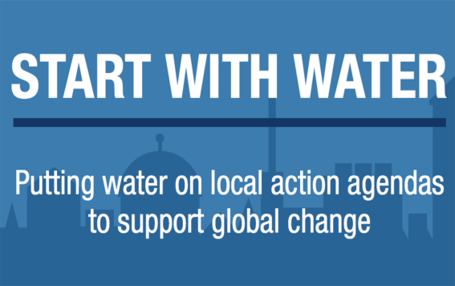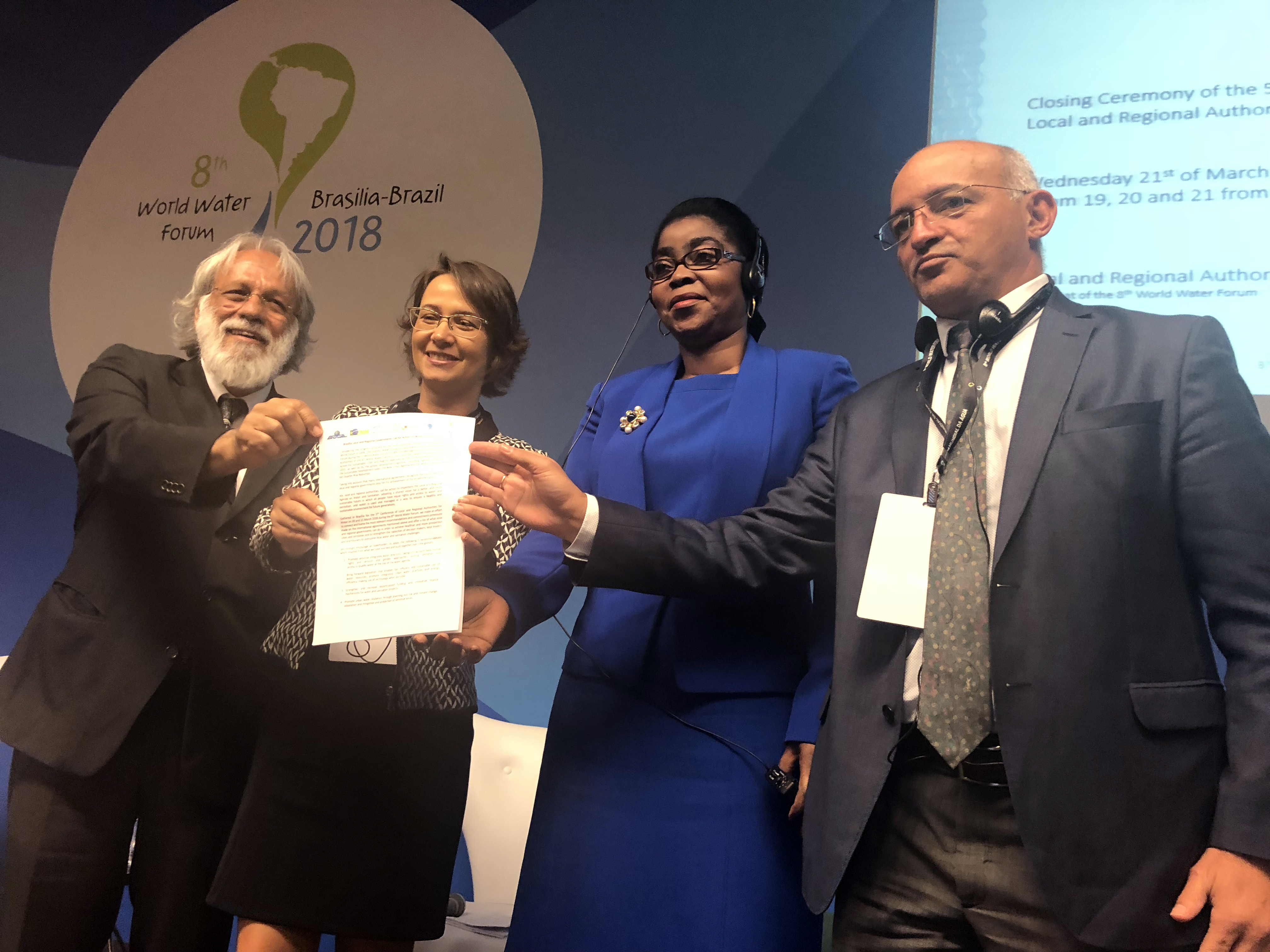
In preparation of the forthcoming High-level Political Forum on Sustainable Development and the Sustainable Development Goal (SDG) 6 in-depth review, UN-Water has produced a SDG 6 Synthesis Report 2018 on Water and Sanitation. A Public Dialogue was open between the 2nd and 16th of May to collect feedback on the report.
UCLG contributed by sharing the insights of the publication “Start With Water“ presented at the 8th World Water Forum and underlined the crucial importance of sanitation for people, as well as the role of local authorities as they are at the forefront and the closest level of governance to the citizens in order to provide with basic services. The report still lacks specific mentions to local and regional governments, although it acknowledges that much depends on their efforts.
Sanitation is a priority for local and regional governments
Today, 2.3 billion people do not have access to sanitation, despite the efforts made over the last fifteen years. UN Water’s report shows that many countries are out-dated, or that their responses are already obsolete. The delay in the provision of this service is a true humanitarian emergency, especially in developing and less developed countries, in which a significant shortage in sanitation provision is combining with rapid growth in urban population.
 In the debate around SDG 6 on Water and Sanitation, Local and Regional Governments have clearly stated that no sustainable urbanization can be ensured without the establishment of an effective sanitation system – without additional financial burden for users. Accordingly, all investment in planned sanitation infrastructure, in collaboration with local and regional governments, can have positive externalities for human development and the achievement of SDGs 6 and 11. This is proven by the inclusive effects for women and girls that did not, or remain without, proper access to schooling because of lack of water and sanitation in those facilities.
In the debate around SDG 6 on Water and Sanitation, Local and Regional Governments have clearly stated that no sustainable urbanization can be ensured without the establishment of an effective sanitation system – without additional financial burden for users. Accordingly, all investment in planned sanitation infrastructure, in collaboration with local and regional governments, can have positive externalities for human development and the achievement of SDGs 6 and 11. This is proven by the inclusive effects for women and girls that did not, or remain without, proper access to schooling because of lack of water and sanitation in those facilities.
The contribution emphasized that many local and regional governments are responsible for the provision of this service and their role in reaching those furthest behind and less integrated areas of the territory. Building on the contribution to the ECOSOC Financing for Development Forum follow up it recalled the significant challenge the heavy investments and operating and maintenance costs related to sanitation represent to local and regional governments and the need for institutional partnerships that include civil society.
Next stages of the Public Dialogue
- Preparing main messages for the High-level Political Forum on Sustainable Development (25 June – 9 July)
- Looking forward and next steps (31 August – 14 September)
- Read the feedback from all the stakeholders on the Forum.










